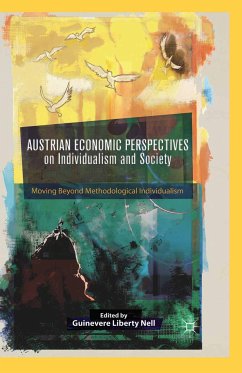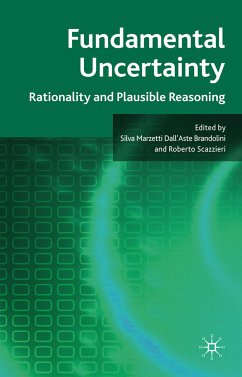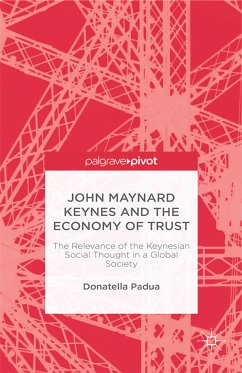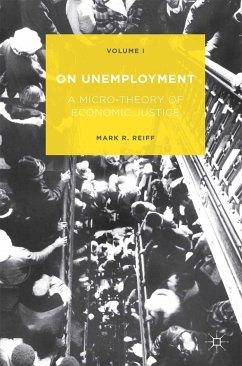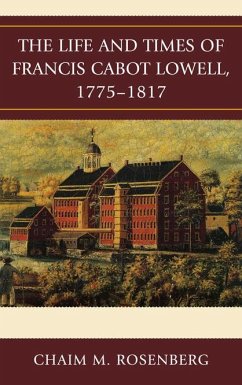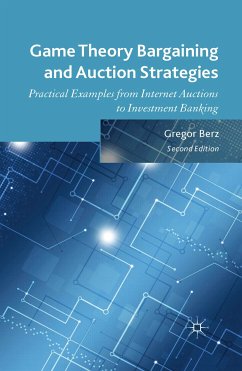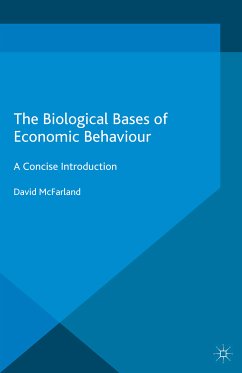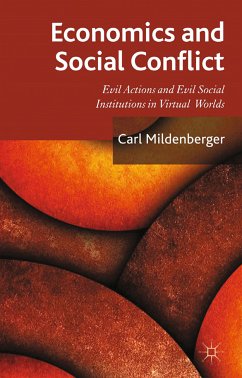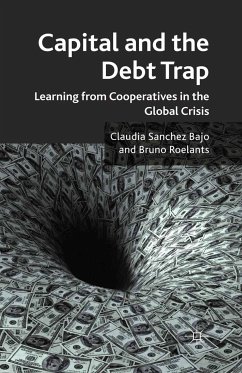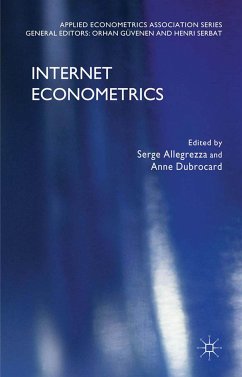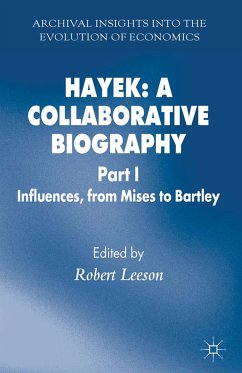
eBook, PDF
Hayek: A Collaborative Biography (eBook, PDF)
Part 1 Influences from Mises to Bartley
Redaktion: Leeson, R.

PAYBACK Punkte
36 °P sammeln!






This is the first collaborative biography of Hayek. Some of the world's most distinguished scholars will integrate the archival evidence with Hayek's published writings to illuminate the process by which Hayek changed the direction of world history.
Dieser Download kann aus rechtlichen Gründen nur mit Rechnungsadresse in A, B, BG, CY, CZ, D, DK, EW, E, FIN, F, GR, HR, H, IRL, I, LT, L, LR, M, NL, PL, P, R, S, SLO, SK ausgeliefert werden.
Samuel Bjork Rafe Champion, independent scholar Selwyn Cornish, Australian National University Steven Dimmick, independent scholar Werner Erhard, founder of Erhard Seminar Training Douglas French, Director of the von Mises Institute Nils Goldschmidt Jan-Otmar Hesse Stephen Kresge was the General Editor of the Collected Writings of F.A. Hayek David Laidler, University of Western Ontario, Canada Melissa Lane, Princeton University, USA Robert Leeson, Stanford University, USA Avner Offer University of Oxford, Emeritus Fellow of All Souls College, Oxford, UK Gabriel Söderberg Viktor Vanberg, University of Freiburg, Germany.
Produktdetails
- Verlag: Palgrave Macmillan UK
- Seitenzahl: 241
- Erscheinungstermin: 12. Mai 2013
- Englisch
- ISBN-13: 9781137328564
- Artikelnr.: 39295166
'This is an interesting and unusual volume ... There is a great deal of useful information in this book.' - Professor Emeritus John King, La Trobe University, Australia
'A unique contribution to the existing literature on Hayek... Leeson has to be credited with providing many details about the establishment and development of the Austrian School of Economics. He also provides a vast amount of information about a number of nineteenth and twentieth century theorists who contributed to the development of the discipline of economics. His explanation of the relationship between Hayek and Mises is very informative, particularly with regards to some of the specific agreements and disagreements they had with one another.' - Filip Birsen,
'A unique contribution to the existing literature on Hayek... Leeson has to be credited with providing many details about the establishment and development of the Austrian School of Economics. He also provides a vast amount of information about a number of nineteenth and twentieth century theorists who contributed to the development of the discipline of economics. His explanation of the relationship between Hayek and Mises is very informative, particularly with regards to some of the specific agreements and disagreements they had with one another.' - Filip Birsen,
Mehr anzeigen
The European Journal of the History of Economic Thought 2014; Volume 21, Issue 1.
'This collective biography is an excellent resource for those interested in, or working on, the career and thought of Friedrich Hayek. In particular it provides a good deal of information regarding Hayek's relationship with other intellectuals and will serve as an important starting point for further research exploring their influence upon his work. Finally, the collection of chapters work well with one another in a way that achieves the goal, outlined by Leeson, of describing, interpreting and integrating Hayek's life, belief and philosophy...
[The study of the relationship between Hayek and William Warren Bartley III] certainly provides a fascinating and colourful account of the personal life and career of this often troubled but apparently brilliant man, who Karl Popper called the best young philosopher he had taught ... Leeson does excellent work here using a range of archival sources. The Hayek, Popper and Lakatos papers are all drawn upon as is the Harvard Crimson and other lesser looked at sources. This will be of interest to anyone attempting to gain an insight into Hayek's attitude to the communist threat and brings to life his time at Cambridge in the 1940s.' - Sean Irving, conomia History / Methodology / Philosophy 2014. Read the full review at: http://oeconomia.revues.org/901
'This collective biography is an excellent resource for those interested in, or working on, the career and thought of Friedrich Hayek. In particular it provides a good deal of information regarding Hayek's relationship with other intellectuals and will serve as an important starting point for further research exploring their influence upon his work. Finally, the collection of chapters work well with one another in a way that achieves the goal, outlined by Leeson, of describing, interpreting and integrating Hayek's life, belief and philosophy...
[The study of the relationship between Hayek and William Warren Bartley III] certainly provides a fascinating and colourful account of the personal life and career of this often troubled but apparently brilliant man, who Karl Popper called the best young philosopher he had taught ... Leeson does excellent work here using a range of archival sources. The Hayek, Popper and Lakatos papers are all drawn upon as is the Harvard Crimson and other lesser looked at sources. This will be of interest to anyone attempting to gain an insight into Hayek's attitude to the communist threat and brings to life his time at Cambridge in the 1940s.' - Sean Irving, conomia History / Methodology / Philosophy 2014. Read the full review at: http://oeconomia.revues.org/901
Schließen
Für dieses Produkt wurde noch keine Bewertung abgegeben. Wir würden uns sehr freuen, wenn du die erste Bewertung schreibst!
Eine Bewertung schreiben
Eine Bewertung schreiben
Andere Kunden interessierten sich für


